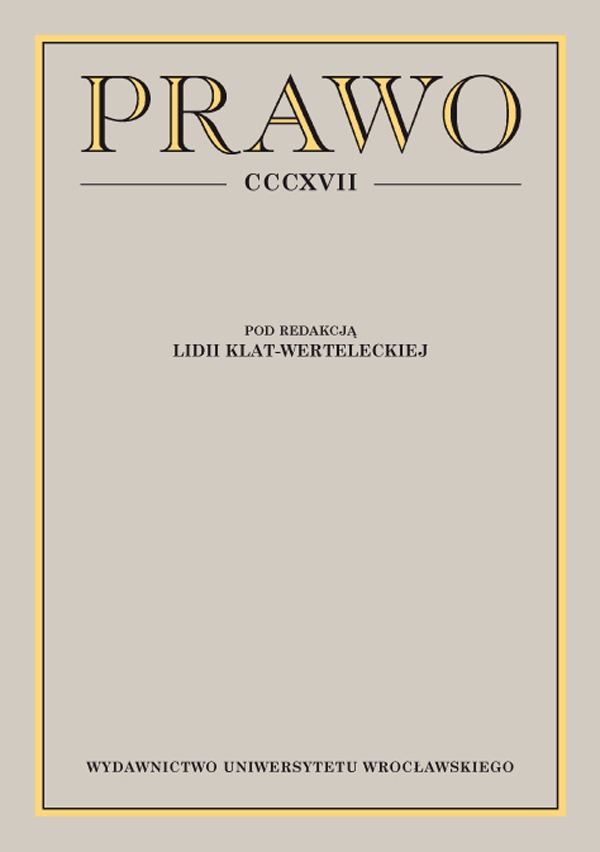

Artykuły

Discretionary competences of states based on the provisions of the Dublin system
The article deals with the Dublin system, that is, the system of exclusive responsibility of one member state of the EU for examining applications for international protection, which is the basis for the Common European Asylum System CEAS. It focuses on discretionary clauses — the opt-out clause sovereignty clause and the humanitarian clause. From the start of the system, these clauses were supposed to guarantee member states a considerable amount of discretionary authority in exercising their competence in granting protection.
The analysis of the binding rules is preceded by a review of the interpretation of the previous regulation — Dublin II — by the Court of Justice. The judgments of the Court presented in the article have had a major influence on the approach and content of the new regulation, changing the methods of operation of the CEAS, and placing less emphasis on the principle of mutual trust. At present, the proper functioning of the CEAS is dependent on a consideration of the actual standard of the asylum system and the degree of respect for human rights in particular member states. At the same time, the underlining principle is for the discretionary competence of the states to not be limited by the rights of the individual.